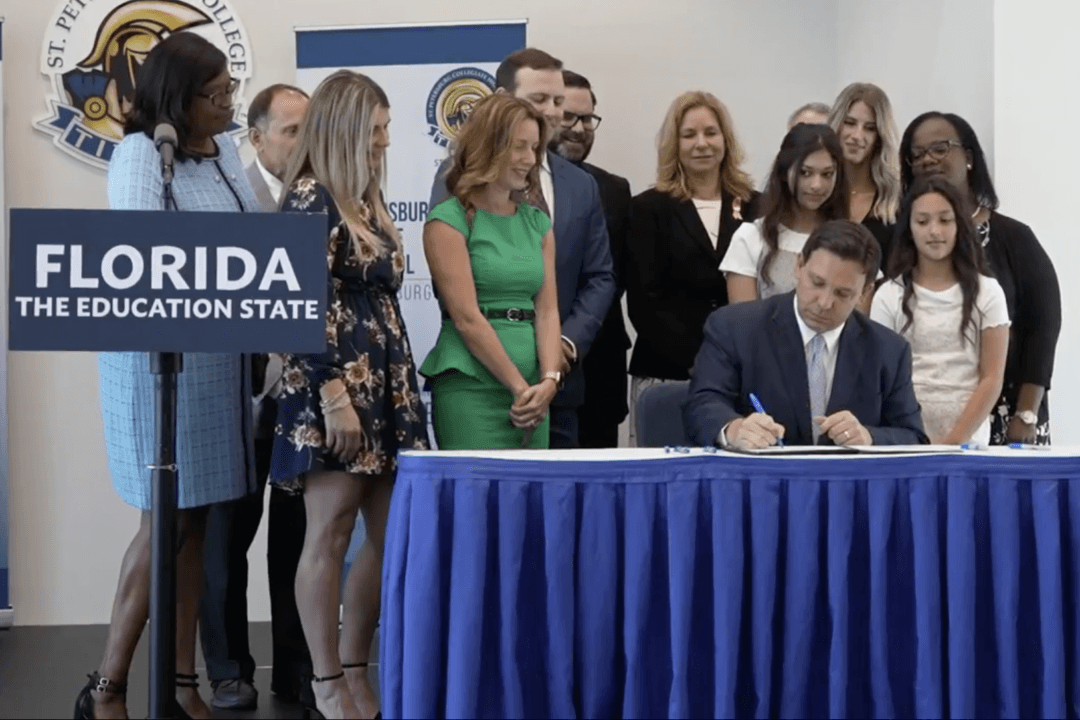Florida Gov. Ron Desantis signed a bill into law on March 15 that eliminates year-end achievement testing for public school students in grades 3 to 10 and replaces it with a computer-based system to monitor students’ progress three times throughout the year.
The new law also adds screening and monitoring of student performance from pre-kindergarten through second grade, aimed at identifying children with learning delays and disabilities and getting interventions in place early.
The Republican governor had urged lawmakers in September to make his proposal a priority for their annual regular session, which ended March 11. The Republican-controlled legislature passed the bill in their last week of work, and delivered it to DeSantis’ desk on March 14.
In place of the statewide, end-of-year, Florida Standards Assessment (FSA), the measure creates a new Florida Assessment of Student Thinking (F.A.S.T) program. The new plan will be implemented in the 2022-23 school year.
DeSantis said the change makes his state the first in the nation to fully implement progress monitoring, instead of relying on “high stakes” testing at the end of the year.
Parents and teachers opposed to the old, statewide, multi-day, end-of-year test—one factor in determining grades assigned to Florida schools—have complained for years that it forces instructors to focus more on teaching for that test, rather than on systematically building on skills students need.
The new law requires “three, short check-ins” during the year, instead, that will give results to teachers, parents, and students far faster than the old way. Under the new system, teaching can be individualized and adjusted, and any learning problems can be addressed immediately.
Teachers will have results from the shorter tests in one week; parents will have results in two weeks. The plan will cut testing time by 75 percent, giving teachers more time to teach what students need to know. And remedial teaching can be tailored to each student’s identified needs.
The new law also so fully eliminates the controversial teaching standards known as Common Core.





